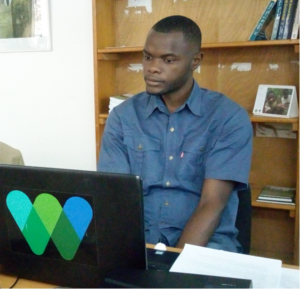University of Oxford
11a Mansfield Rd
OX1 3SZ
UK

Lude Kinzonzi
Background
Research Interests
Across Central Africa, forest animals are being hunted to satisfy the demands of large and growing urban centres. An estimated 5 million tons of wildmeat is extracted annually in the Congo Basin. The level of hunting to meet urban demand for meat is considered unsustainable.
I am particularly interested in studying urban bushmeat consumption, selling and transportation. I wish to increase our understanding of stakeholders, practices and motivations around these sectors in a manner that allows the findings to inform the development or adaptation of solutions to reduce wildmeat demand in urban areas. In addition, I am interested in understanding the evolving perceptions of populations in relation to wildmeat and conservation organisations, as well as the role of non-conservation actors, such as media agencies, civil society, the private sector, celebrities etc, in tackling emerging issues such as the need to scale up efforts to prevent future zoonotic diseases.
Current Research
My current research involves exploring perceptions around wildlife consumption in the Republic of Congo, and understanding the impact of the COVID-19 pandemic on these perceptions, and how public responses are shaped by media discourses.
This research uses the Global Database of Events, Language, and Tone (GDELT) platform to collate online news articles for content analysis to understand public perceptions and behaviours relating to wildmeat and zoonotic diseases. The findings from this research will be presented in policy briefs to inform national and regional wildmeat interventions with the ultimate aim of reducing and regulating wildmeat consumption in urban areas.
Brief CV
Since 2017, I have been working on the Wildlife Conservation Society’s Urban Bushmeat Project, which aims to reduce threats to wildlife from urban bushmeat demand in the Republic of Congo and the Democratic Republic of Congo. My work involves supporting the development and implementation of research, including coordinating field work, collecting data, and supporting data analysis. I have also been supporting the development, implementation, monitoring and evaluation of the project’s behavior change campaign to reduce urban bushmeat consumption. In addition, I have contributed to identifying and liaising with key project stakeholders.
I hold a Level 4 Diploma in Oil and Gas Management, from J-Prompt Institute of Technology, Accra, Republic of Ghana, and awarded by the Institute of Professional and Executive Development-United Kingdom (IPED-UK); and I have good working knowledge of French, English and Congolese languages.
